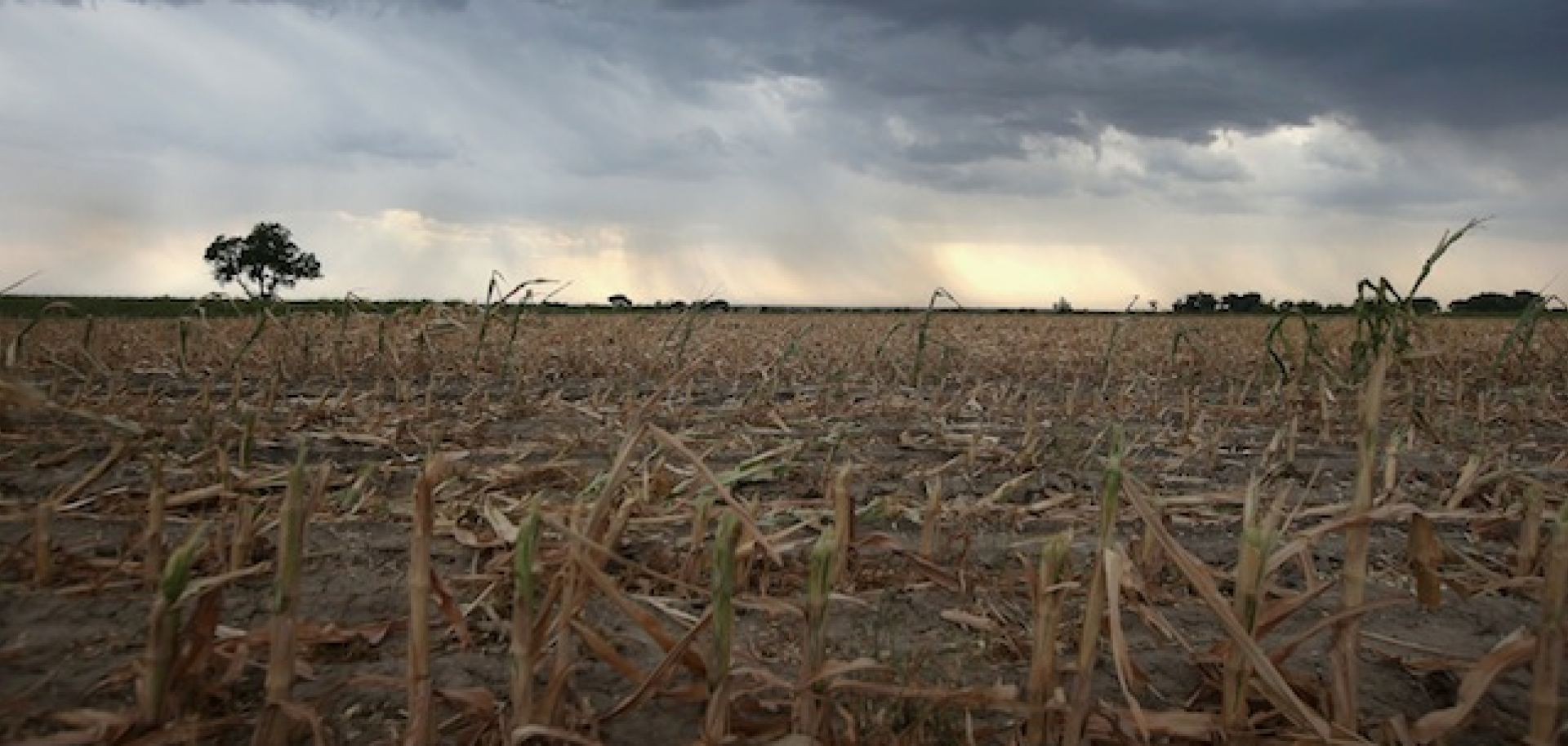ASSESSMENTS
Drought and Overuse Plague a Critical U.S. Aquifer
Aug 12, 2013 | 10:20 GMT

(JOHN MOORE/Getty Images)
Summary
Groundwater depletion of the High Plains Aquifer in the central United States due to overuse, drought and mismanagement poses a major long-term threat to U.S. agricultural production and exports. Irrigation using water from the aquifer supports a significant portion of U.S. farming, and because many countries rely on food imports from the United States to maintain their own political stability, the implications for the rest of the world could also be profound.
While the 2012 drought certainly had a negative impact on agricultural output, at this point sustained groundwater shortages have not contributed to widespread declines in crop yields, and there is no consensus on when these groundwater reserves will completely disappear. In light of the ongoing depletion of the aquifer, governments at the federal, state and local levels have made efforts to adopt a more sustainable groundwater management policy, and advancements in desalination technology in the future also could help alleviate water shortages in the Great Plains. Still, without major reforms to the existing groundwater extraction practices in the High Plains Aquifer, agricultural output remains at risk.
Subscribe Now
SubscribeAlready have an account?
